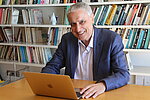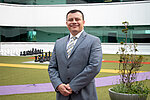SCIAS Fellows
Becoming a SCIAS-Fellow
Internationally renowned researchers from universities and research facilities all over the world, who cooperate with faculties of JMU, can be appointed SCIAS-Fellow of the Siebold-Collegium Institute of Advanced Studies.
Requirements are:
- The title of professor or at least being a postdoc (minimum of four years since degree).
- Proven affinity to JMU (past stays in Würzburg, cooperation with Würzburger researchers, etc.).
- A stay of at least three month at SCIAS.
- A guest lecture of about 30-45 minutes on the current research topic.
Our SCIAS-Fellows
The Julius-Maximilians-Universität Würzburg has hosted many excellent researchers who developed tight cooperation and connections with the university and the city of Würzburg. Here you can find some current and formerly leading researchers of different scientific disciplines which we are proud to call SCIAS Fellows.
Abou Samra, Gaby

Gaby Abou Samra is Professor of Epigraphy and Semitic Studies at the Lebanese University, Beirut. His research focuses on the iconographic and textual analysis of magic bowls in Aramaic, Syriac and Mandaean. Particular attention is paid to morphology and syntax in order to enable philological analyses and comparisons with other Semitic texts (e.g. Bible, Talmud, rabbinic literature). Prof. Abou Samra's research focuses on Phoenician, Aramaic, Hebrew, Syriac and Arabic inscriptions.
His research at MagEIA will focus on the contents of magical bowls: iconography and texts (Aramaic, Syriac, and Mandaic). He will point out several grammatical targets: morphology, syntax, philological commentary, comparative studies with other semitic texts (Bible, Talmud, Rabbinic literature…).
Bell, Toby
Dr. Toby Bell (Monash University in Melbourne) is a chemist. He received his doctorate from the University of Melbourne in 2002. The subsequent postdoctoral phase brought him to the Max Planck Institute for Chemical Energy Conversion (Mülheim) and the Catholic University of Leuven (Belgium). In 2009, he was appointed Lecturer in Physical Chemistry at Monash University and in 2014 he was appointed to a Tenure Track at Monash University. At Monash he heads an interdisciplinary research group using fluorescence techniques to study molecules and cells.
Beltz, Jon

Jon Beltz completed his PhD in Assyriology at Yale University. His research focuses on the religion and literature of ancient Mesopotamia, and in particular the nature of deities and demons and exorcistic magical texts. His dissertation, Namtar: Deity, Demon, Agent of Fate, examines the roles and nature of a Mesopotamian chthonic figure, Namtar, a sort of grim reaper in Mesopotamian mythology. He also has a forthcoming article publishing several Sumerian amuletic incantations and has worked on the function of inscribed amulets in ancient Mesopotamia. At the MagEIA Centre for Advanced Studies he will begin his next project, an updated edition of a group of Sumerian and bilingual Sumero-Akkadian incantations known as zi–pa3 incantations.
Çilingir Cesur, Sevgül
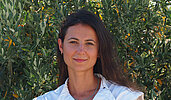
Assoc. Prof. Dr. Sevgül Çilingir Cesur is a full-time lecturer at Ege University, in İzmir. Her research interests lie in the field of Hittite magical rituals and the comparative analysis of texts in terms of paraphernalia, concepts of time, space, and the individuals participating in these practices. She obtained her PhD from Dokuz Eylül University, in İzmir, with a dissertation titled "The Magical Rituals of the Hittites and Their Segment Categories (CTH 390-470)" under the supervision of Prof. Dr. Recai Tekoğlu. In her dissertation, she conducted a comparative analysis of a selected group of ritual materials, namely wood, dough, metal, clay, and stone. This work was published in 2020 by VakıfBank Kültür Yayınları, in Istanbul. In 2018, she was a postdoctoral fellow at the Department of Ancient Near Eastern Studies at Julius-Maximilians-Universität Würzburg, within the framework of the TÜBİTAK-2019 International Postdoctoral Research Fellowship Program for Turkish Citizens. The objective of this research was to study the concepts of time in Hittite ritual texts, with a particular focus on the terms that specifically refer to different periods of a day and their functions in ritual practices.
Between 2021 and 2023, Dr. Çilingir Cesur and Dr. Michele Cammarosano (Università di Napoli “L'Orientale”) collaborated on a research project entitled "The Sea in Hittite Culture," which was funded by the Suna & İnan Kıraç Research Center for Mediterranean Civilizations at Koç University (AKMED). The aim of this project was to provide a comprehensive reassessment of the role of the sea in Hittite culture, based on a combined analysis of textual and archaeological material.
Dr. Sevgül Çilingir Cesur is currently residing at the Welz-Haus as a Senior Fellow of the DFG Center for Advanced Studies in the Humanities and Social Sciences 42 MagEIA - Magic between Entanglement, Interaction, and Analogy (DFG Kolleg-Forschungsgruppe 42), as a guest of Prof. Dr. Daniel Schwemer, Chair of Ancient Near Eastern Studies at Julius-Maximilians-Universität Würzburg. In the context of this project, she is investigating the role of subsidiary actors in Hittite magical rituals through a comprehensive analysis of texts, with the objective of portraying the diversity of individuals involved in Hittite magical practices.
Dardano, Paola
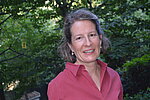
Paola Dardano's research focuses on historical-comparative linguistics, particularly the Hittite and Greek languages. Her interests include the morphosyntax and phraseology of Indo-European languages, the theory and methods of etymology, the Indo-European poetic language, and contact linguistics. She was a research fellow of the Alexander von Humboldt Foundation at the University of Cologne from 2008-2009. Since December 2019 she has been a full professor at the Università per Stranieri di Siena. She has resided at the Welz-Haus as a Senior Fellow of the DFG Center for Advanced Studies in the Humanities and Social Sciences 42 MagEIA - Magic between Entanglement, Interaction, and Analogy (DFG Kolleg-Forschungsgruppe 42), as a guest of Prof. Dr. Daniel Kölligan, Chair of Comparative Philology at Julius-Maximilians-Universität Würzburg. In the context of this project, she is investigating the terminology and phraseology of Hittite magical texts.
De Carvalho Costa, Natanael
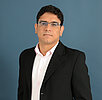
Natanael de Carvalho Costa holds a Ph.D. in Physics from the Federal University of Rio de Janeiro (UFRJ), Brazil, working in the area of Condensed Matter Physics, with an emphasis on the theory of Strongly Correlated Electron Systems. He was a postdoctoral researcher at UFRJ (2018) and at Scuola Internazionale Superiore di Studi Avanzati (SISSA), in Trieste, Italy (2019-2020). He is a Fellow of the Siebold-Collegium Institute for Advanced Studies (SCIAS) and the Alexander von Humboldt Foundation, and a visiting professor at Julius-Maximilians-Universität Würzburg (2025-2028) in Germany. Since 2020, he has been an Associate Professor at the Institute of Physics of UFRJ. He is a recipient of the "Jovem Cientista do Nosso Estado" (Young Scientist of Our State; 2023-2025) and "Jovem Pesquisador Fluminense" (Young Fluminense Researcher; 2025-2027) fellowships, both funded by the funding agency FAPERJ (Brazil).
O´Connor, Maureen

Maureen O’Connor is Senior Lecturer in the Department of English in University College Cork. She has published widely in the field of Irish Studies, specialising in women’s writing and ecocritical approaches, and has delivered keynote lectures in India, Japan, Austria, Spain, Germany, and France. She is the author of The Female and the Species: The Animal in Irish Women’s Writing (2010) and has co-edited a number of field-defining volumes, including, with Derek Gladwin, a special issue of the Canadian Journal of Irish Studies, “Irish Studies and the Environmental Humanities” (2018); with Kathryn Laing and Sinéad Mooney, of Edna O’Brien: New Critical Perspectives (2006); with Lisa Colletta, of Wild Colonial Girl: Essays on Edna O’Brien (2006); and, with Tadhg Foley, of Ireland and India: Colonies, Culture, and Empire (2006). She is currently writing a volume for inclusion in the Cork University Press series, “Síreacht: Longings for Another Ireland,” on the topic of Animals.
Fassl, Johanna
Dr. Johanna Fassl is Professor of Art History and Visual Communication and the Co-Director of the Scholarships Without Borders Program at Franklin University Switzerland, where she is also an editor of the academic journal intervalla: platform for intellectual exchange. She received her PhD with distinction from Columbia University and established and directed CU’s Study Center Casa Muraro and academic program in Venice. Her research, supported by scholarships from the Mellon Foundation, Getty Research Institute, and the Swiss National Science Foundation, analyzes eighteenth-century art, specifically the work of Giambattista Tiepolo, within an interdisciplinary context of optics, philosophy, and the psychology of perception, placing a specific emphasis on the void and other forms of abstraction. Her second research area lies in contemporary art connected with trauma studies, investigating works by artists that respond to war or were produced during the flight from conflict zones.
Fineran, Peter
Peter Fineran is a professor at the University of Otago in New Zealand in the Department of Microbiology and Immunology. As the head of the phage-host laboratory, he is investigating mechanisms by which bacteria defend themselves against bacteriophages - viruses that infect bacteria. In particular, his group is studying bacterial CRISPR-Cas, toxin-antitoxin and other defence systems, and how phages can overcome these defences. He aims to exploit these research findings to apply phages as new anti-infectives and use defence systems for biotechnological purposes.
Prof. Fineran started his academic career at the University of Canterbury, New Zealand, where he obtained a bachelor's degree in biochemistry. He completed his doctorate at Cambridge University, UK, where he also worked as a postdoctoral researcher before he started his own group in New Zealand in 2008. He has received numerous awards for his scientific achievements, including the Fleming Prize of the Microbiology Society (UK), and he was recently elected as a Fellow of the Royal Society of New Zealand.
Flecha, Ramón
Prof. Flecha is an Emeritus Professor at the University of Barcelona. He was hired by the EC as chair of the Expert Group which elaborated the criteria of policy and societal impact of all sciences in the European scientific programme. Prof. Flecha is the first scientist in the categories of Social Impact and Gender Violence in Google Scholar. He has delivered lectures in Harvard and Cambridge and published articles in journals by those universities. Prof. Flecha founded CREA, a research center that collaborates with scholars of diverse disciplines like mathematics, physics, and health in developing the social impact of their studies. Some of his scientific creations are being implemented in more than 100 countries.
Hofmann, Stefan
Prof. Dr. Stefan Hofman (Boston University) is a leading expert in the research of anxiety and anxiety disorders. Since 2008, he is Professor of Psychology at the Department of Psychology of Boston University. He directs the Psychotherapy and Emotion Research Laboratory where he examines anxiety disorders with regard to treatment mechanisms, translational research, culture and mental health, motion research and psychopathology and nosology.
Huang, Zhenguo
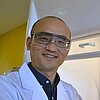
The research focus of Dr. Zhenguo Huang (University of Technology Sydney) is in the field of new boron-containing compounds for potential applications in hydrogen storage and batteries as well as the growth of large and few-layered h-BN nanosheets and borophene, and their novel applications. He currently is a Senior Researcher at the School of Civil and Environmental Engineering of the University of Technology Sydney.
Kaminski, Matthias

Dr. Matthias Kaminski [http://mkaminski.people.ua.edu/] is an Associate Professor in the Department of Physics and Astronomy at the University of Alabama, USA. As a theoretical physicist his goal is to connect fundamental theoretical principles with feasible experiments.
He applies methods from string theory and theoretical physics to strongly-coupled-quantum-many-body systems far from equilibrium, such as plasma in heavy-ion-collisions, neutron stars, ultra-cold atoms, and condensed matter materials. Specifically, he is exploring the black hole information paradox and its relationship to quantum information theory as well as quantum computing.
Dr. Kaminski received his diploma in physics from JMU Würzburg (2005) and his PhD from LMU Munich (2008). He then held postdoc positions at Princeton, UW (Seattle), and UAM (Madrid).
After spending his sabbatical year 2022 at JMU Würzburg, Dr. Kaminski has become a frequent guest of Prof. Dr. Ronny Thomale (JMU Würzburg).
Karim, Shuan

Dr. Shuan Karim is an Alexander von Humboldt postdoctoral fellow at Julius-Maximilians-Universität Würzburg (JMU). He has a Ph.D. in linguistics from Ohio State University. Dr. Karim’s research interests are historical/diachronic linguistics, morphology, and language documentation, with an areal focus on Iranian languages. His current research focus centers around the diachronic reconstruction of earlier stages of Gorani, Zazaki, and Kurdish. His approach differs from most works in Iranian historical linguistics by rejecting the top-down approach. Dr. Karim employs the "Neo-Grammarian" Comparative Method using data collected from fieldwork from current speakers of modern varieties. His goal is to reconstruct the earlier stages of these subfamilies with the same level of rigour and accuracy as scholars were able to achieve in the reconstruction of Proto-Indo-European.
Kawamoto, Keisuke
Prof. Keisuke Kawamoto, M.D., Ph.D. is an expert physician in hematology and general internal medicine in Japan. After finishing the residency programs of hematology and internal medicine, Prof. Kawamoto became a graduated school student for researching the biology of malignant lymphoma at Kurume University (Hematopathology, Prof. Koichi Ohshima Lab) because he experienced a lot of patients with poor prognostic hematological malignancies as a physician. Prof. Kawamoto's main work is research on T/NK-cell type malignant lymphoma by using histopathological analysis. T/NK-cell lymphoma shows poor prognosis because no effective treatment is still established. Prof. Kawamoto became a researcher at the Institute of Pathology JMU since 2022 and he is currently challenging for the subclassifying T/NK-cell malignant lymphoma by trying novel approaches in order to improve the prognosis of T/NK-cell type malignant lymphoma.
Krich, Jacob
Jacob Krich is an Associate Professor at the University of Ottawa in the Department of Physics. He is a theoretical condensed matter physicist focusing on nonlinear spectroscopies and novel pathways to high efficiency photovoltaics. He received his BA in Physics from Swarthmore College in Pennsylvania, followed by an MMath from Oxford University, where he was a Rhodes Scholar. He received his PhD in theoretical condensed-matter physics from Harvard University. After receiving his PhD, he was a Ziff Fellow of the Harvard University Center for the Environment and a postdoctoral fellow in the Department of Chemistry and Chemical Biology at Harvard. Dr. Krich joined the University of Ottawa in 2012 and received the Ontario Ministry of Research and Innovation Early Researcher Award for his contributions to the field of novel photovoltaics in 2018.
Kumigashira, Hiroshi
Prof. Dr. Hiroshi Kumigashira (Tohoku University) is one of the leading experts in the field of oxide nanostructures, photoemission spectroscopy and x-ray absorption spectroscopy. He has a Ph.D. in Physics and holds the chair of the Institute of Multidisciplinary Research for Advanced Materials (IMRAM) at Tohoku University and of the Photon Factory, Institute of Materials Structure Science (IMSS) from the High Energy Accelerator Research Organization (KEK).
Kundu, Arnab

Dr. Arnab Kundu is a Professor in the Theory Division of Saha Institute of Nuclear Physics, Kolkata, India and Homi Bhabha National Institute, Mumbai, India. He is a theoretical physicist who explores formal theoretical techniques and ideas to learn about the observed Universe. In particular, he is interested in using string theoretic framework and technology to understand aspects of strongly coupled systems, quantum aspects of black holes and gravity, real-time dynamical quantum systems, quantum information theory, quantum chaos and their inter-relations.
Dr. Arnab Kundu obtained his doctoral degree at the University of Southern California, and post-doctoral training at the Weinberg Theory Group, The University of Texas at Austin and at the University of Barcelona before going back to India for a career in research. He is currently a Humboldt Fellow (experienced researcher) associated with the Theoretical Physics III, Department of Physics and Astronomy at JMU, Würzburg, during 2024-2026.
Levene, Dan

Professor Dan Levene is a specialist in healing traditions in the Semitic language speaking world, specifically relating to the Christian and Jewish cultures. His expertise in Hebrew, Aramaic dialects, Syriac and Geez has meant that he has been able to focus much of his publication on the production of historical texts that deal with well-being. In more recent years Levene has been working in Ethiopia (where he spent part of his childhood) investigating both historical texts and living traditions. Furthermore, he has been involved with The Tropical Health Education Trust (THET) as a proponent of raising awareness of modern medical doctors’ understanding of traditional beliefs and customs.
Liu, Danlu

Dr. Danlu Liu is an associate professor at the School of Government, Nanjing University, China. After receiving her Ph.D. in Economics from Nanjing University, she worked as a post-doctoral researcher at National Academy of Economic Strategy, Chinese Academy of Social Sciences. Her main interested topics include industrial economics, service economics, innovation, and globalization etc. Her previous research consists of two parts. One part focuses on the structural reform issues in China’s service industry, while the other part explores China’s industrial development in the context of globalization.
Lopatin, Mikhail
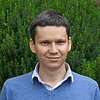
Mikhail Lopatin received his B.A, M.A (with distincition) and PhD in Musicology from the P.I. Tchaikovsky Conservatory in Moscow (Title of the PhD-Thesis: "Franco-Flemish Masses of the Fiftheenth Century: Issues of Stylistic Development"). His main research focus have been in canons and canonic techniques of Trecento and early Quattrocento music. After his dissertation Mikhail Lopatin initially worked as a lecturer at the Tchaikovsky Convervatory. Lopatin then held positions at internationally renowned institutions: He received a "Swiss Federal Government Scholarship", was Visiting Fellow at the Villa I Tatti at Harvard University (Center for Italien Renaissance Studies, Florence), and Newton Intrerantional Fellow at the University of Oxford (St. Hugh's College). From 2018 to 2020 he is a Humboldt Fellow at the JMU.
During his research stay at the University of Würzburg, Mikhail Lopatin received the renowned "Westrup Prize" for his article "Metapoesis in Trecento Song: 'Divisio' at the Intersection of Love, Poetic Form, and Music" in the journal "Music and Letters" (Vol. 99, 2018).
Martin, Caleb
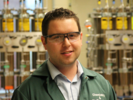
Dr. Caleb Martin is a Professor in the Department of Chemistry and Biochemistry at Baylor University in Waco, TX, USA. He was born and raised in Canada. He received a BSc from Mount Allison University and his PhD from the University of Western Ontario. After moving to UC Riverside and UC San Diego in the US for a Post Doc, he began his independent career at Baylor as an Assistant Professor in 2013 and has been promoted to the rank of Professor in 2024. His visits to the Institute for Sustainable Chemistry and Catalysis with Boron at JMU-Würzburg are supported by a Humboldt Fellowship. His research achievements have been recognized with a National Science Foundation CAREER Award. His research program is focused on making boron compounds for the catalytic upgrading of waste products and organic materials.
Matthews, John

John Matthews is Professor of Linguistics at Chuo University in Tokyo (Japan) where he investigates the psycholinguistic mechanisms involved in processing non-native language speech by bilinguals and second language learners. His work focuses primarily on the interference that knowledge of previous languages (native and non-native) can have on the perception of speech in a new language and how that interference diminishes over the course of increasing proficiency. He resided at Welz-Haus for the summer term 2024 as the guest of Prof. Dr. Barış Kabak of the Neuphilologisches Institut. During his stay he spent time developing experimental materials for use in a new series of studies examining the processing of speech among Japanese speakers of German both in Germany and in Japan, benefitting richly from the linguistics community at Würzburg.
Mengistie, Mersha

Prof. Dr. Mersha Mengistie is an Ethiopian Studies scholar, philologist, literary scholar and cultural activist. He holds a B.A. in Ethiopian Language and Literature (1997) and an M.A. in Literature (Foreign Languages) (2003), both from Addis Ababa University, and a Ph.D. in Ethiopian Studies and Philology (2010) from the University of Hamburg. His doctoral studies were supported by a DAAD scholarship. He also completed a Master's degree in Social Work at Addis Ababa University in 2023. Since June 2018, he has been an Associate Professor of Philology in the Department of Linguistics and Philology at Addis Ababa University. During his stay, he is examining a selection of Ethiopian magical texts, including manuals, recipe books and amulets, to gather information on structure, content and purpose and to assess the relationship of this selection to other areas of Ethiopian Orthodox Christian literature.
Muriel Ciceri, José Hernán
Prof. Dr. José Hernán Muriel Ciceri (Tecnológico de Monterrey, Mexico) is a legal scholar. After studying at the Santo Tomás University in Bogotá (Colombia), he obtained an LL. M. at the University of Konstanz. He then completed his doctorate there under the supervision of Prof. em. Dr. Dr. h. c. Dieter Lorenz with the thesis "Die Übertragung der Abfallentsorgung auf Dritte" (2006). After several years of practical and academic work in Colombia, he has held a professorship at the University Tecnológico de Monterrey in Puebla (Mexico) since 2021.
In addition to law and technology, Prof. Muriel's research focuses primarily on financial market law, private international law, and environmental and energy law. The cooperation with his Würzburg colleague Prof. Dr. Markus Ludwigs has resulted in a jointly published international conference volume on the topic of "Administrative Law and Sustainable Development (Derecho administrativo y desarrollo sostenible)" (https://www.wup.uni-wuerzburg.de/aktuelles/meldungen/single/news/derecho-administrativo-y-desarrollo-sostenible-verwaltungsrecht-und-nachhaltige-entwicklung/). Another anthology on "Digitalisation as a Challenge for Justice and Administration (La digitalización como reto para la justicia y la administración)" will be published shortly.
Nielsen, Peter Arnt
Prof. Peter Arnt Nielsen (Copenhagen Business School) is a legal scholar. After graduating in law from the University of Copenhagen, he received his doctorate there in 1999. After holding judicial positions, he has been a professor at the Copenhagen Business School since 2007 and heads the legal department there. Prof. Nielsen has been a member of numerous legislative committees and working groups in the European Union. He is also a member of the Groupe européen de droit international privé and the International Academy of Comparative Law.
His research focuses on international arbitration, mediation, litigation, Danish and international contract law and European private law.
Ponte-Sucre, Alicia
Prof. Dr. Alicia Ponte-Sucre (Central University of Venezuela, UCV) is one of the leading experts regarding the themes Leishmania and Trypanosoma. Prof. Dr. Alicia Ponte-Sucre holds a Magister Scientiarum in Biology (Physiology and Biophysics) and a Doctor of Sciences (Pharmacology). She is Full Professor in Human Physiology at the Faculty of Medicine, UCV. She has several scientific affiliations in her field and acts as external advisor of diverse national and international institutions for projects and scholarships and referee for national and international journals. She is member of the Directorate of the Venezuelan-German cultural organization, named Humboldt Cultural Association. This corporation was founded in Caracas in 1949, with the special task of deepening the ties between Venezuela and Germany, and to promote cultural scientific exchanges between the two countries.
Sen, Neelam

Dr. Neelam Dabas Sen is a Ramalingaswami Fellow at the School of Life Sciences, Jawaharlal Nehru University in India. She received her PhD from Julius-Maximilians-Universität Würzburg in 2008. She was a postdoctoral fellow at Duke University Medical Centre, Research Fellow and Sr Research Fellow at the National Institutes of Health, USA. Her research contributions have been mainly in the area of control of gene expression in eukaryotes. Her ongoing work aims to understand the mechanisms and regulation of protein synthesis in living cells. She has received the Women Scientists Advisors Scholar Award at NIH, Fellows Award for Research Excellence at NIH and RLS Fellowship from the Department of Biotechnology, Government of India.
Sen, Subhabrata
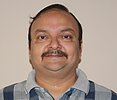
Professor Subhabrata Sen, since July 2019 Professor Designate of Chemistry at Shiv Nadar University, Greater Noida, near New Delhi, Uttar Pradesh, India. He will join this position from July 2019, was the head of the Department of Chemistry at Shiv Nadar University until July 2018. From 2002 to 2012, he gained experience in pharmaceutical industry in companies like Chemocentryx Inc., USA, BASF-India, Pfizer-VMPS before joining academia in 2013. So far, he has mentored seven Ph.D. students. He is an editorial board member of Wiley Journals (Drug Development Research). So far, he has more than fifty peer-reviewed publications in internationally reputed journals and holds several world and US patents. Among the numerous awards he received is the Siebold Collegium Fellowship from University of Würzburg in 2017.
Tiryaki, Mehmet Zahit
Assoc. Prof. Dr. Mehmet Zahit Tiryaki graduated from Marmara University Faculty of Theology in 2005. In 2007, he completed his master's degree at the Marmara University Institute of Social Sciences with his thesis titled "The Analysis of Mehmed Emin Üsküdârî's Şerhu Tehzîbi'l-Mantık" and in 2015, he completed his doctorate with his thesis titled "Imagination/Cogitation and Estimation in Ibn Sina's Philosophy". Tiryaki conducted research on his research topics at the University of Jordan in 2010-2011 and at Yale University in 2012-2013. Currently working as a lecturer at Istanbul Medeniyet University, Faculty of Letters, Department of Philosophy, Department of Islamic Philosophy, Tiryaki's main area of interest is theories of the soul and philosophy of mind in their classical and contemporary aspects. Focusing more specifically on the approaches to the soul-body relation in the classical and post-classical periods of Islamic philosophy and theology, Tiryaki traces the approaches to the mind-body relation from the early periods of the history of philosophy to the contemporary period. In this long-scale reading, Tiryaki argues that despite the conceptual differences and transformations in various periods, the mind-body problem and the basic approaches such as dualism and materialism developed to solve this problem can be read within a problematic continuity. Tiryaki, who thinks that the conceptual and historical transformations in the mind-body problem can only be fully understood through such a long-scale historical reading, and in this sense adopts both a historical and problematic reading, understanding and interpretation framework for the mind-body problem, tries to situate the approaches to the soul-body relation in the classical and post-classical periods of Islamic philosophy and theology within the general history of philosophy.
Tsunekawa, Masanori
Ass. Prof. Dr. Masanori Tsunekawa (Shiga University) is an expert on the topic of Photoemission. He has a Ph.D. in Physics and is currently Assitant Professor at the Faculty of Education, Shiga University.
Vanegas-Fischbach, Horacio
Prof. Dr. Horacio Vanegas-Fischbach (formerly Venezuelan Institute for Scientific Research, IVIC) is a Neurobiology scientist. He holds a Bachelor in Medicine and Surgery, a Doctor of Philosophy from Yale University, and has been a full professor at the department of Biophysics and Biochemistry at the IVIC for several years.
Verde, Francesco
The research interests of Prof. Dr. Francesco Verde's (Sapienza University of Rome) include, among others, History of Ancient Philosophy, Classical Philology, Greek and Roman Literary and Philosophical Culture, History of Ancient Physics, History of Greek Mathematics and Philosophical Historiography of the Ancient World. He has a Ph.D. degree in Philosophy and is currently Adjunct Professor of History of Ancient Philosophy at Sapienza University of Rome.
Xie, Zuowei
Prof. Dr. Zuowei Xie is a member of the Chinese Academy of Sciences and the Hong Kong Academy of Sciences. He is a Choh-Ming Li Professor of Chemistry in the Chinese University of Hong Kong. He received a BSc degree from Hangzhou University in 1983 and a MSc in 1986 from Shanghai Institute of Organic Chemistry, the Chinese Academy of Sciences. He earned his PhD in Chemistry in 1990, working in a joint PhD program offered by Shanghai Institute of Organic Chemistry and Technische Universität Berlin. Prof. Xie’s main research interests center around the chemistry of (super)carboranes, metallacarboranes and low-valent main group elements, as well as catalytic B-H bond functionalization. He has published over 350 scientific papers and received numerous honors and awards including the Humboldt Research Award (2022), Inaugural Hong Kong Research Grants Council Senior Research Fellowship (2020), the State Natural Science Prize (2008).




